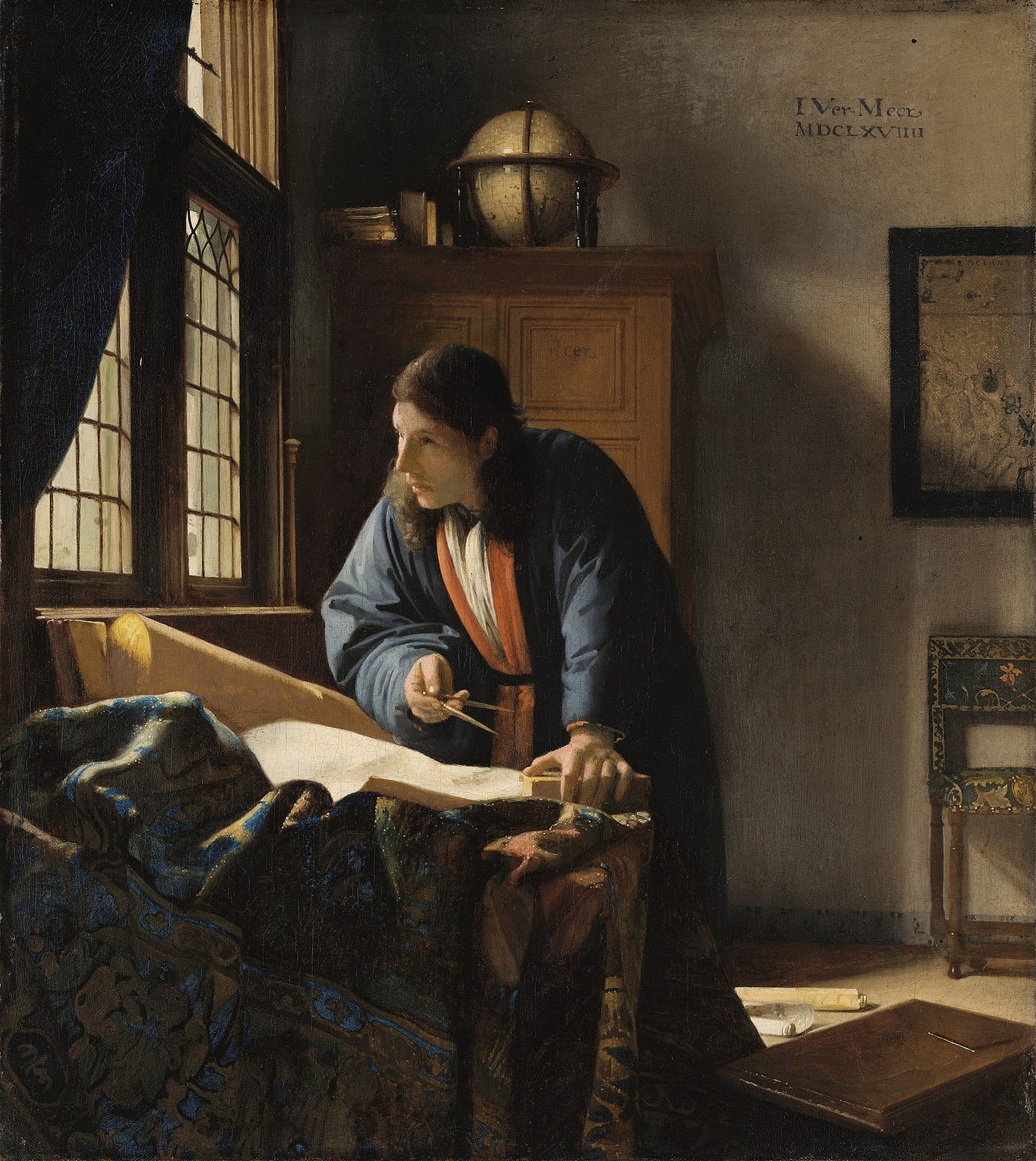In 1569, Gerardus Mercator, by far the most accomplished cartographer in Europe, and creator of the map projection system still most commonly used today, began what he hoped would be his seminal work: the Cosmographia — a description of the whole universe. It was to be composed of five parts: (1) creation; (2) astronomy; (3) geography; (4) history; and (5) chronology. Of these, he managed to complete only two and a half of the five volumes.
Mercator died before he could finish his magnum opus, because of course he did: who could ever hope to describe the entire universe in a single lifetime? Well, actually, he wasn’t the only one to have tried: Sebastian Münster published his own Cosmographia in 1544, Peter Heylyn’s Cosmographie came out a century later, while the Persian scholar Zakariya al-Qazwini’s 1100-page cosmographical tome, Marvels of Things Created and Miraculous Aspects of Things Existing, was published as early as the 13th-century.
Reading these works from the vantage point of the 21st-century — what with their chapters on angelology and bestiaries, their fantastical maps and geocentric cosmoi — can make for quite comical reading. But I think there is something to be admired in the sheer audacity of attempting something as preposterous as putting the entire universe down on paper.
I see in those men a true thirst for knowledge, a commitment to spend a lifetime learning as much as they could about the world and its workings, and to pass that on to others. They cared not for specialisation or credentialism, nor did they wait for permission to study what they wished. They simply read and read, and thought and thought, trying, perhaps in vain, to distil it all into a single map of the cosmos.
Cosmography both as a word and a discipline is no longer in vogue, but in a sense the practice lives on, shattered and divided, within a hundred different academic disciplines. Much has been made of this siloisation of knowledge, and the problems it causes. I’m not really sure it’s the academy’s fault per se; it can take decades to accumulate the specialist knowledge required at the frontier of a field; who then would have time to do that in more than one, let alone all of them? Still, it feels an important task, perhaps left to those operating outside of the strictures of traditional academia, to attempt to draw lines across disciplines, to cross-pollinate ideas and let a thousand flowers bloom.
Regardless, the cosmographic enterprise remains important today in that it really is the entire human intellectual endeavour. For what is the corpus of philosophy, theology, history, geography, and science, if not the attempt to map the universe and our place in it?
This then is why I write Cosmographia: because I want to learn more about the world. I believe learning should be a lifelong endeavour, not something that ends with formal schooling. My goal writing here each week is to deepen my own understanding of the world, and, hopefully, by learning in public, the reader’s too.
I see this blog as an attempt to make a map of the world. Instead of rhumb lines and coordinates and compass roses, this map is made of hundreds of attempts to understand a small part of the world, whether that be an element of its history, geography, or its scientific processes. Then, layer by layer, all of those small parts add up to enable a greater understanding of the whole.
I can’t pretend to be an expert in any of the topics I write about; neither can I make claim to much original scholarship. But I hope, if nothing else, to be able to inspire a sense of curiosity for the world — which, contrary to popular sentiment, remains a beautiful and fascinating place.
I took the name of Mercator’s work for this blog knowing that, like him, the intended goal would always be beyond my means. Who knows, perhaps the cosmographic project may not even be achievable within the entire scope of human civilisation. But the pursuit of knowledge is a noble goal for its own sake, and to deliberately aim towards a target you’ll never quite reach is a way of orienting oneself to a higher ideal.
After all, life is all too finite. Let us not waste it; let us learn instead.







I love what you do here, Mikey. As a lifelong learner myself, I love all of the threads of history, geography, religion, art and more that you follow. And I look forward to reading many more of them in 2025.
I love it.
"I can’t pretend to be an expert in any of the topics I write about; neither can I make claim to much original scholarship. But I hope, if nothing else, to be able to inspire a sense of curiosity for the world — which, contrary to popular sentiment, remains a beautiful and fascinating place."
I might as well have written this myself, if a bit more clumsily. My role is to find neat things and share them with people, so they feel that same sense of wonder. You do this really well here, Mikey.